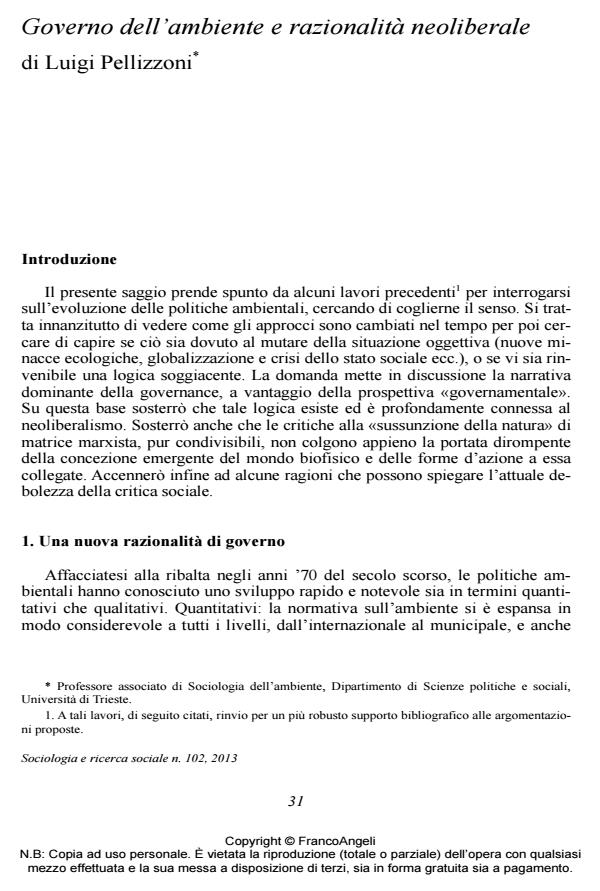Governo dell’ambiente e razionalità neoliberale
Titolo Rivista SOCIOLOGIA E RICERCA SOCIALE
Autori/Curatori Luigi Pellizzoni
Anno di pubblicazione 2014 Fascicolo 2013/102
Lingua Italiano Numero pagine 10 P. 31-40 Dimensione file 491 KB
DOI 10.3280/SR2013-102003
Il DOI è il codice a barre della proprietà intellettuale: per saperne di più
clicca qui
Qui sotto puoi vedere in anteprima la prima pagina di questo articolo.
Se questo articolo ti interessa, lo puoi acquistare (e scaricare in formato pdf) seguendo le facili indicazioni per acquistare il download credit. Acquista Download Credits per scaricare questo Articolo in formato PDF

FrancoAngeli è membro della Publishers International Linking Association, Inc (PILA), associazione indipendente e non profit per facilitare (attraverso i servizi tecnologici implementati da CrossRef.org) l’accesso degli studiosi ai contenuti digitali nelle pubblicazioni professionali e scientifiche.
In the environmental field the traditional opposition between state and market has been gradually sidestepped by complex forms of intervention, where both terms change their meaning. A governmental perspective, rather than a governance one, is more useful in providing indications to understand the stakes of what appears to be a profound transformation in the way humans conceive the biophysical world and their relations with it, in which the hegemony of neoliberalism and its rationality of government play a crucial role. This process challenges the conceptual equipment of the social sciences. The current «return» to material reality does not necessarily lead to an adequately critical perspective
Luigi Pellizzoni, Governo dell’ambiente e razionalità neoliberale in "SOCIOLOGIA E RICERCA SOCIALE " 102/2013, pp 31-40, DOI: 10.3280/SR2013-102003